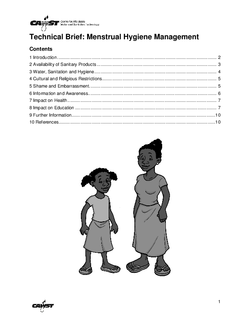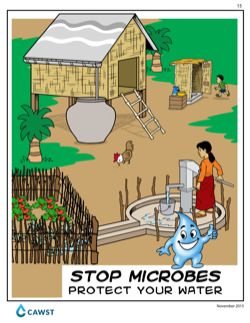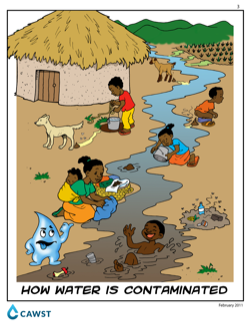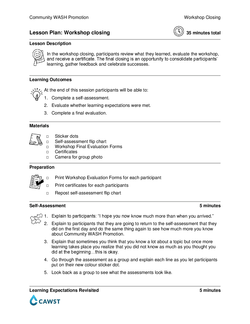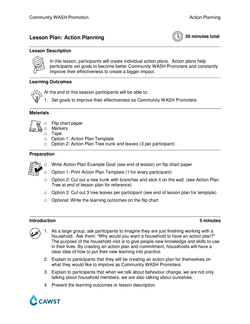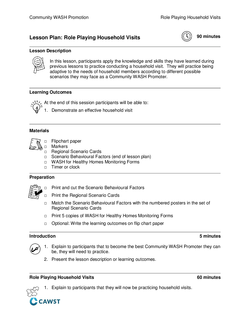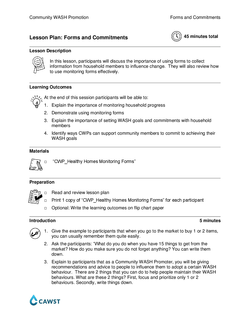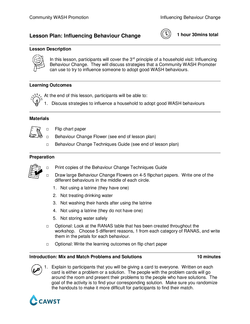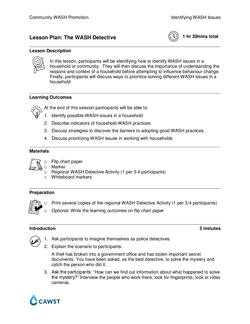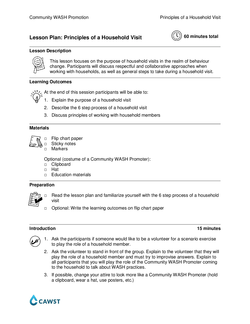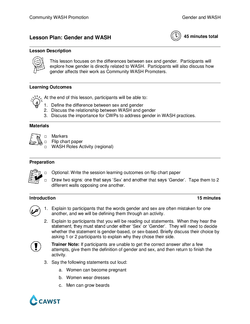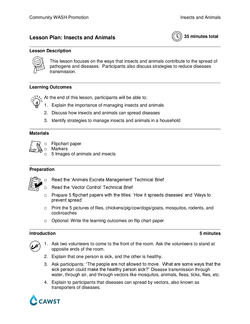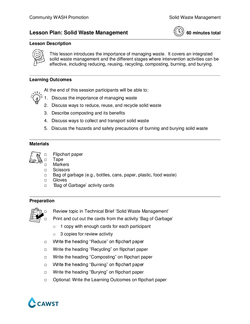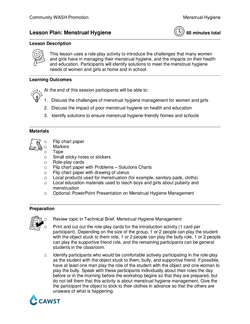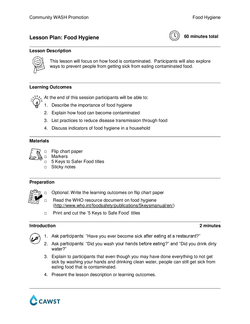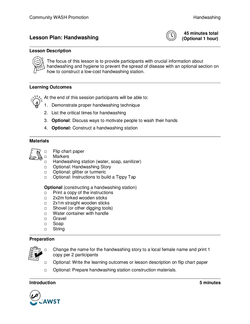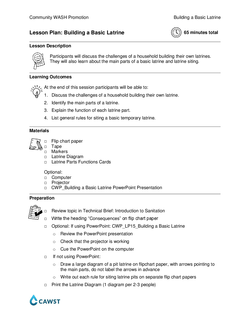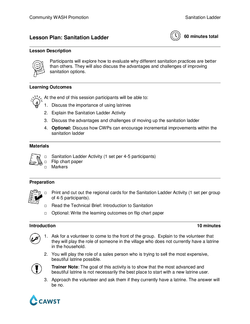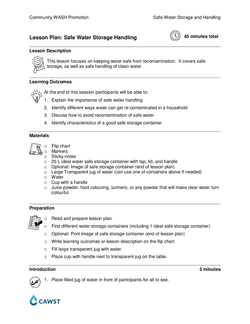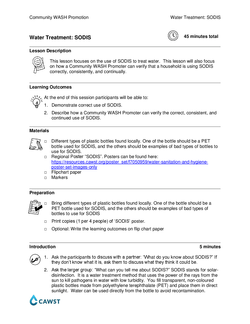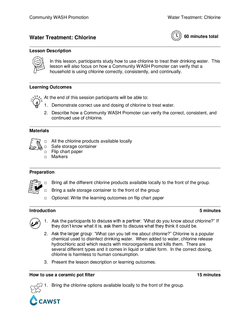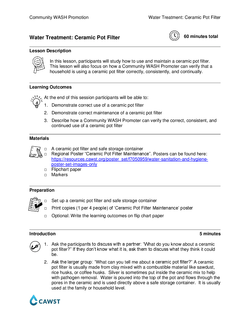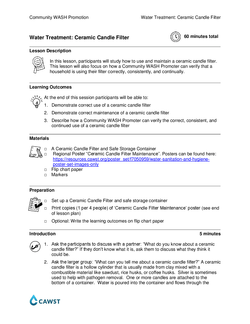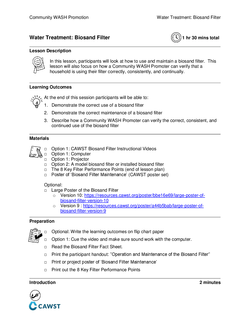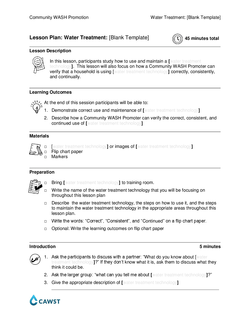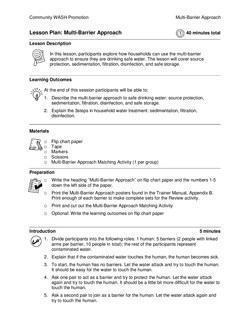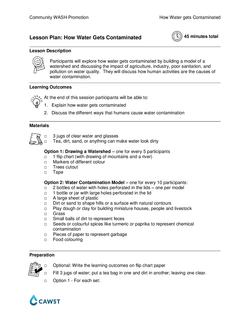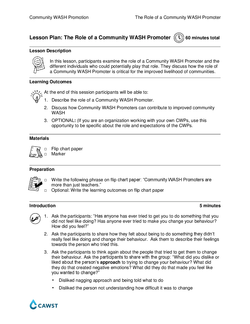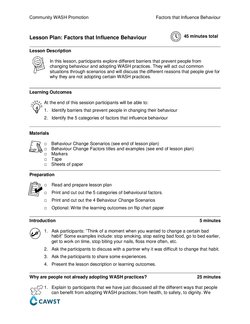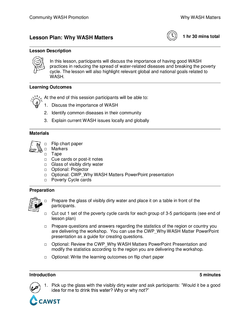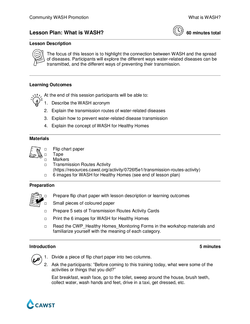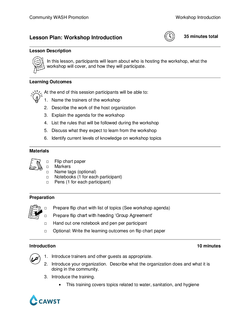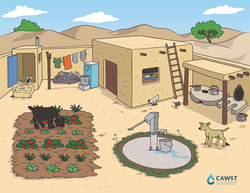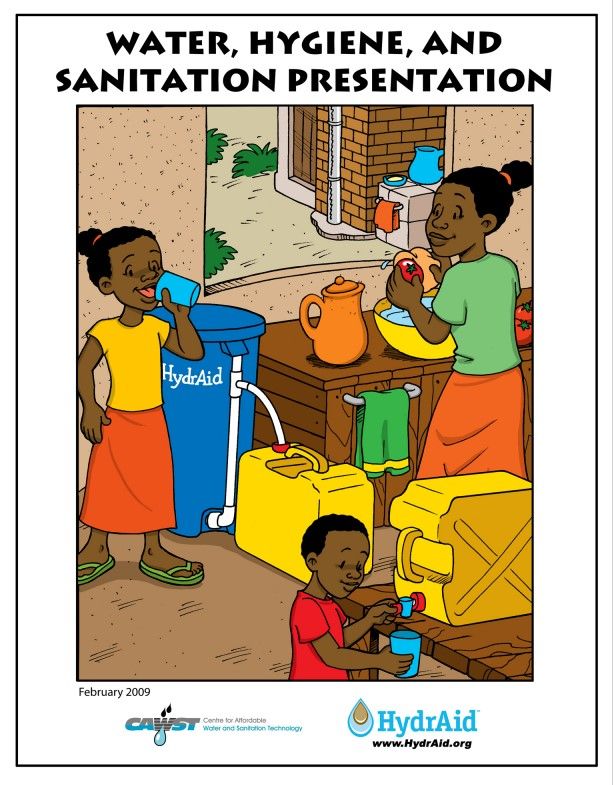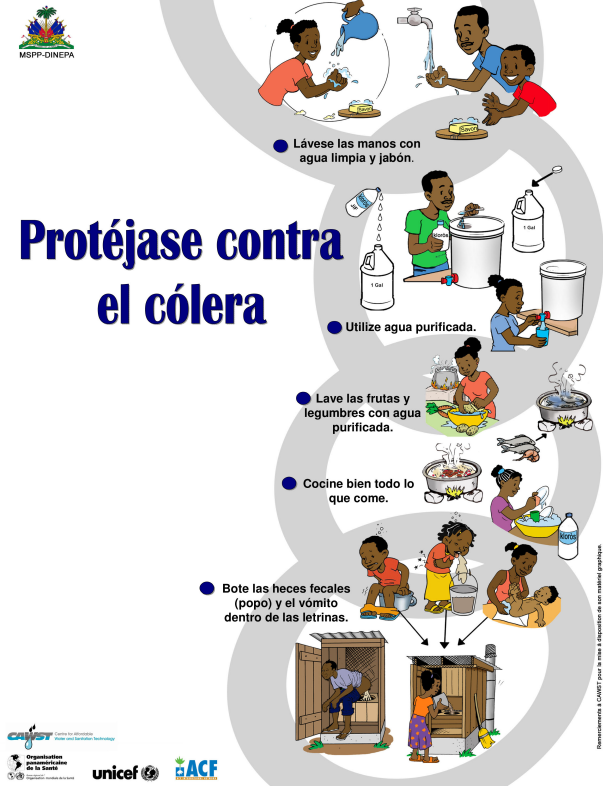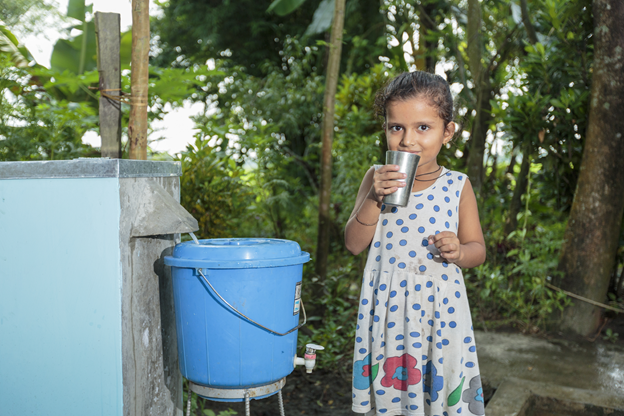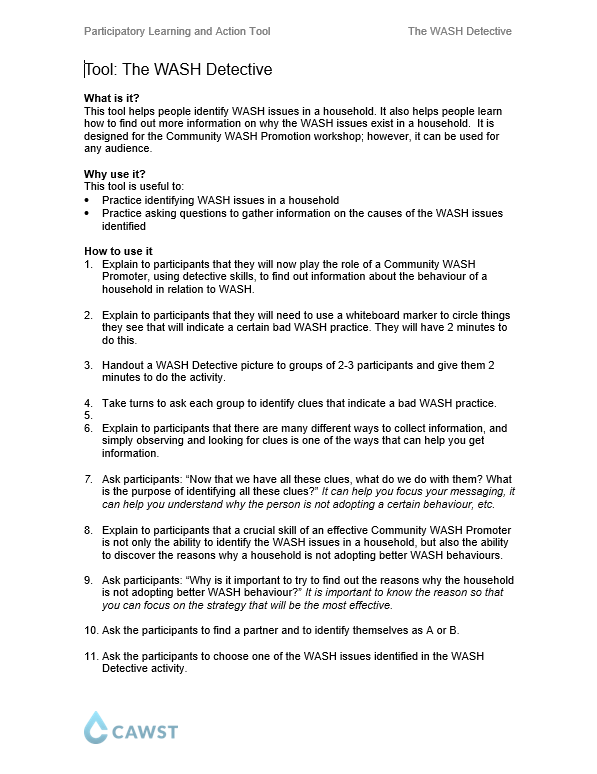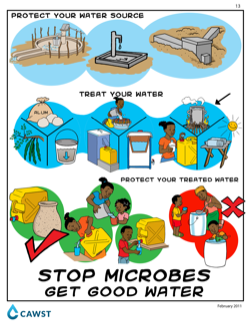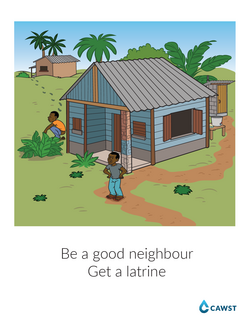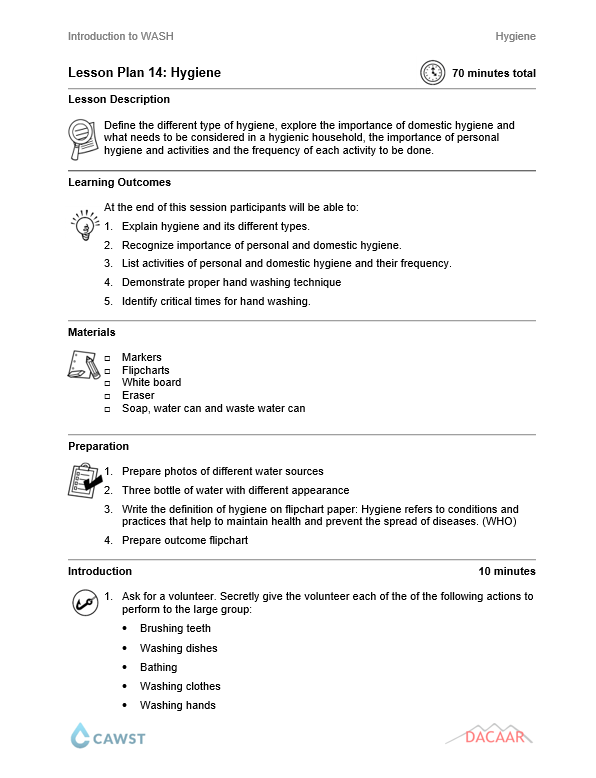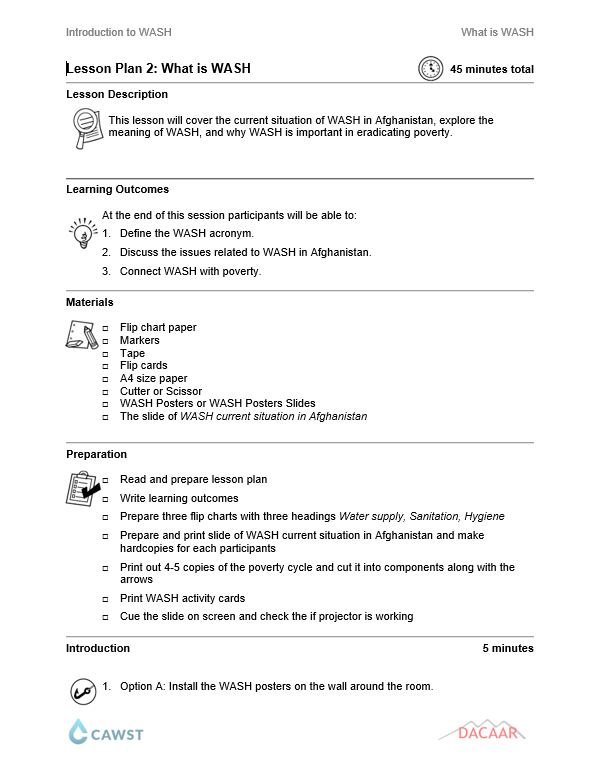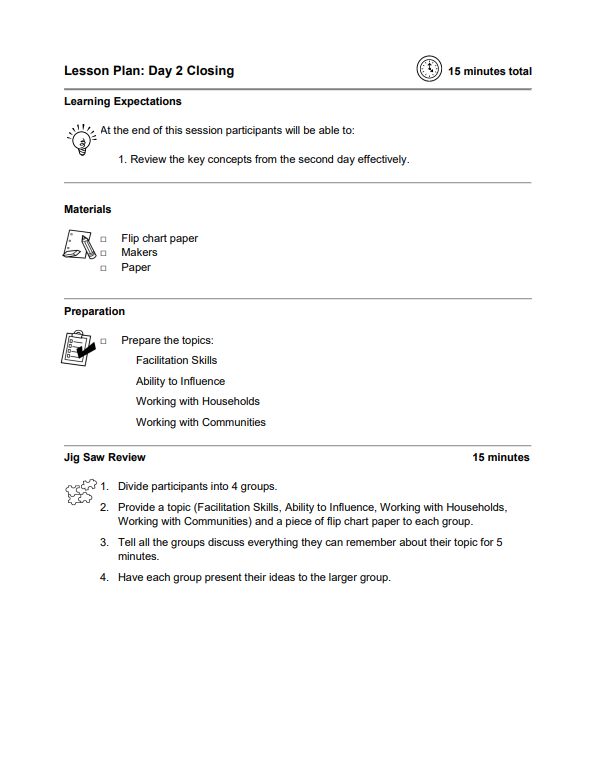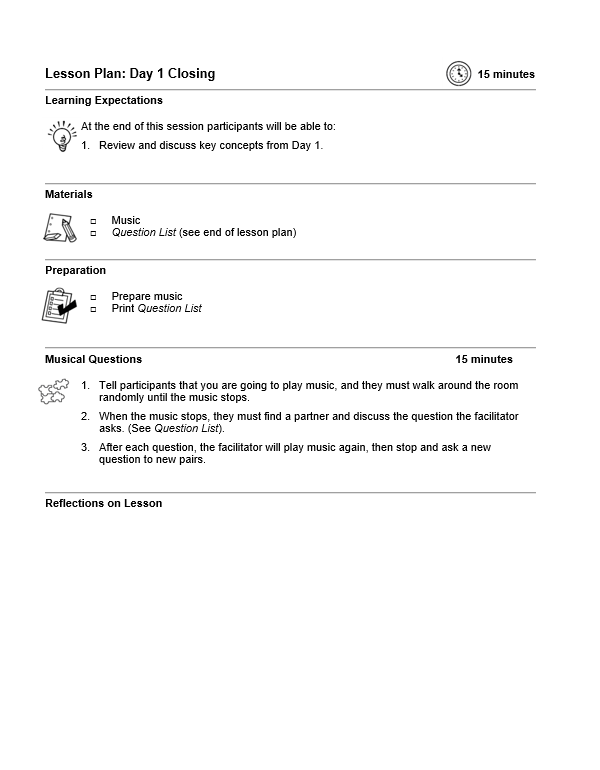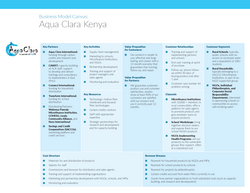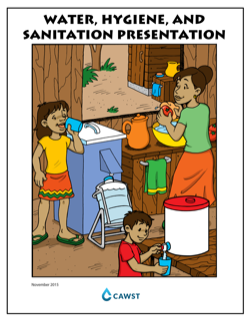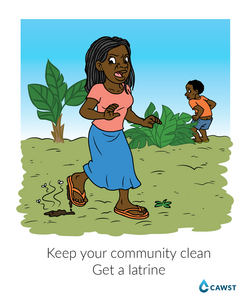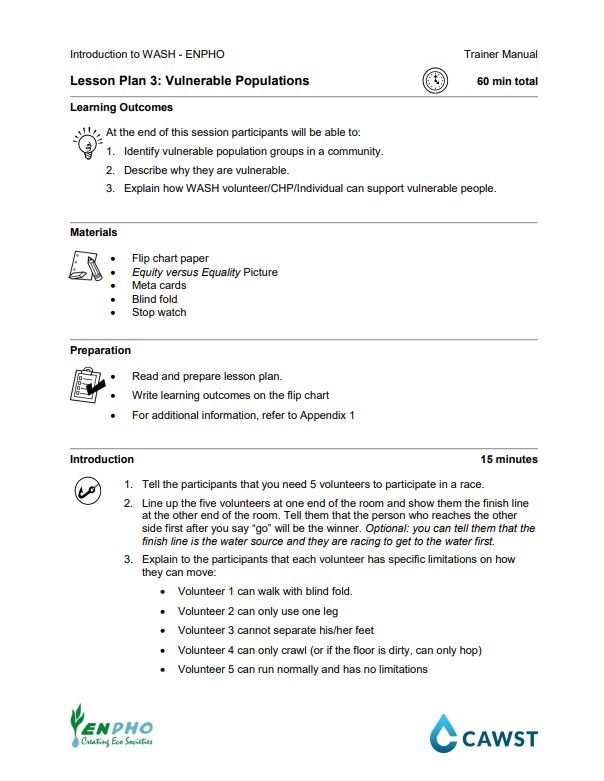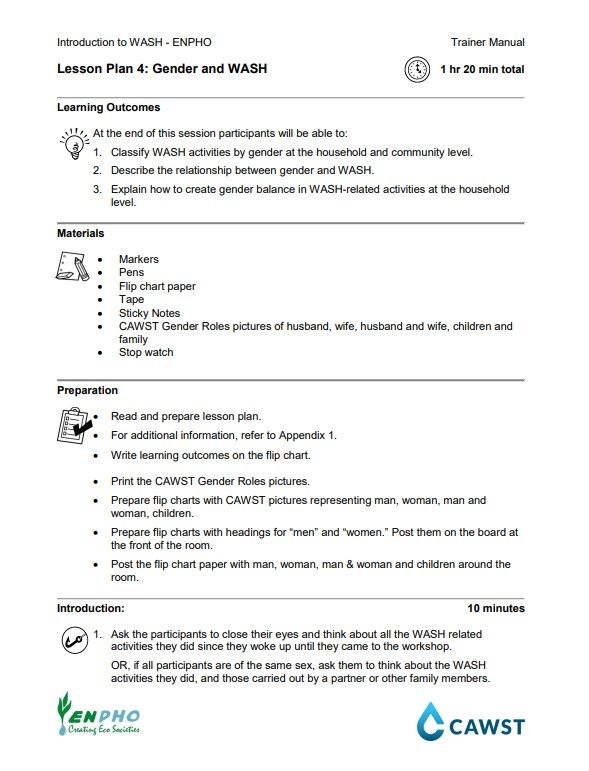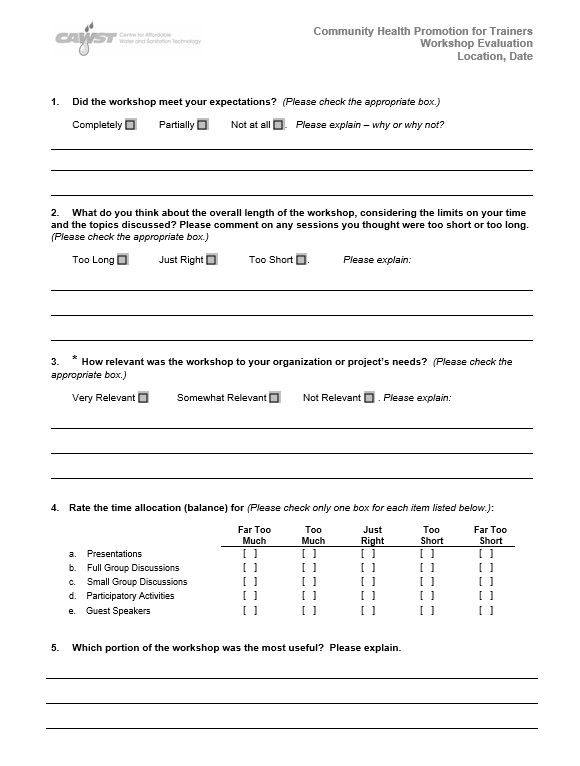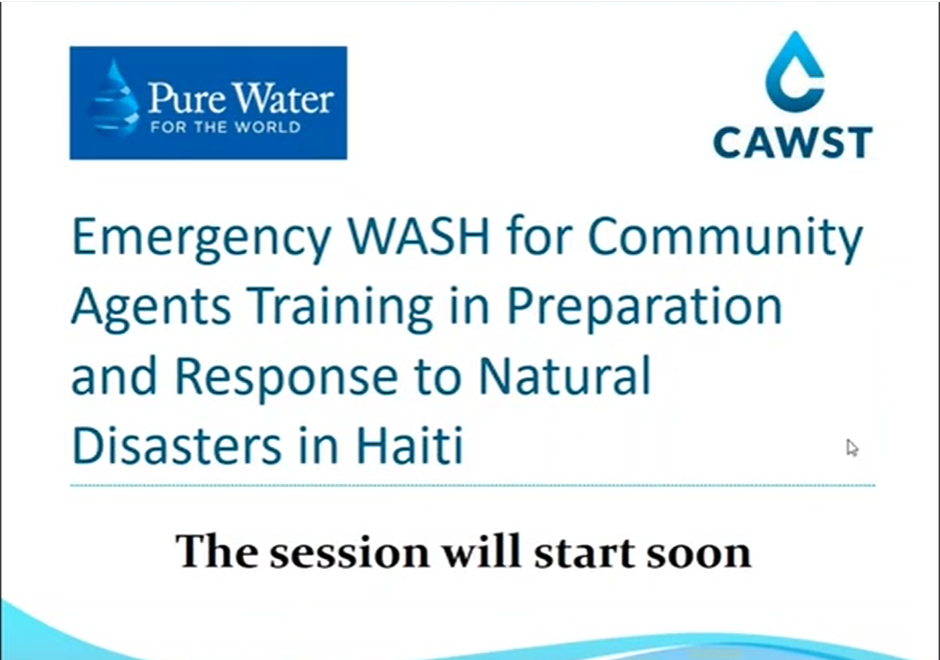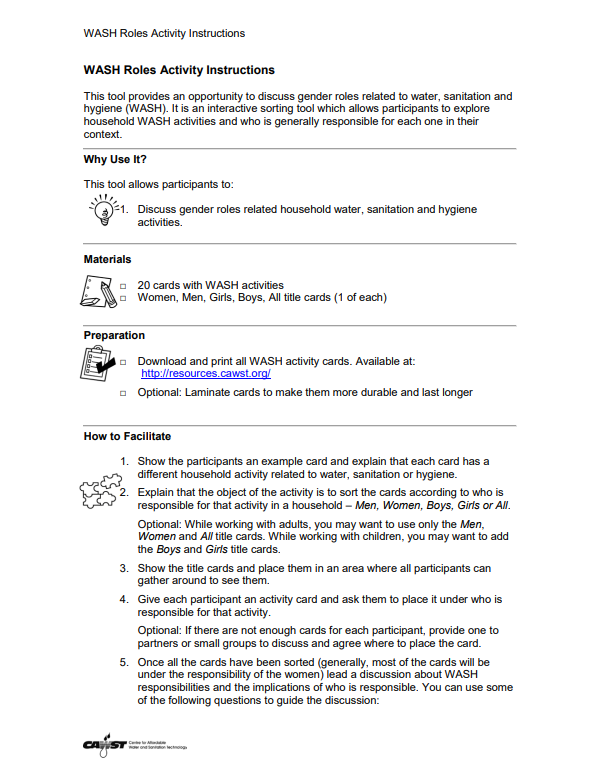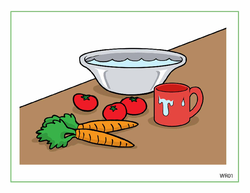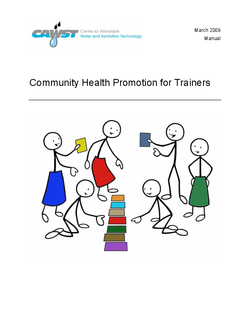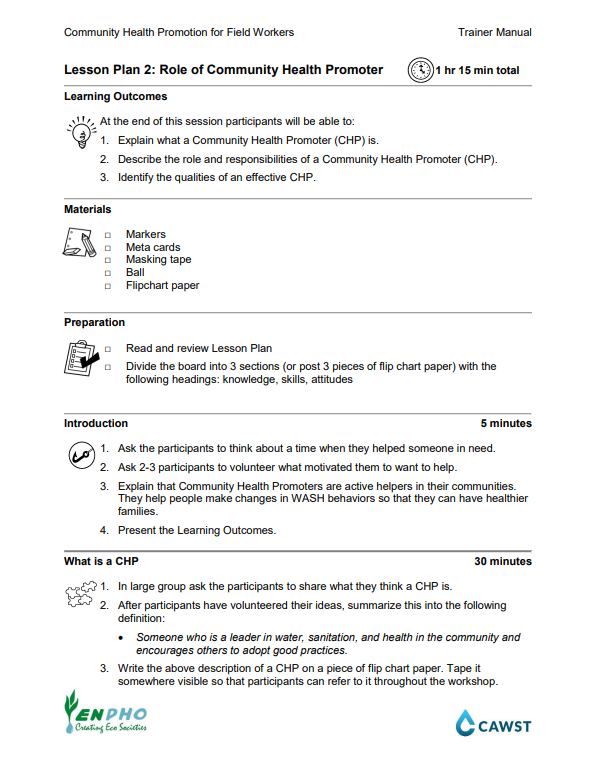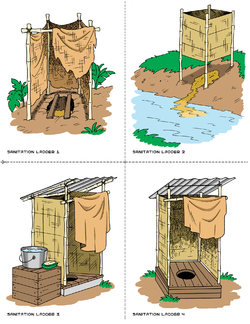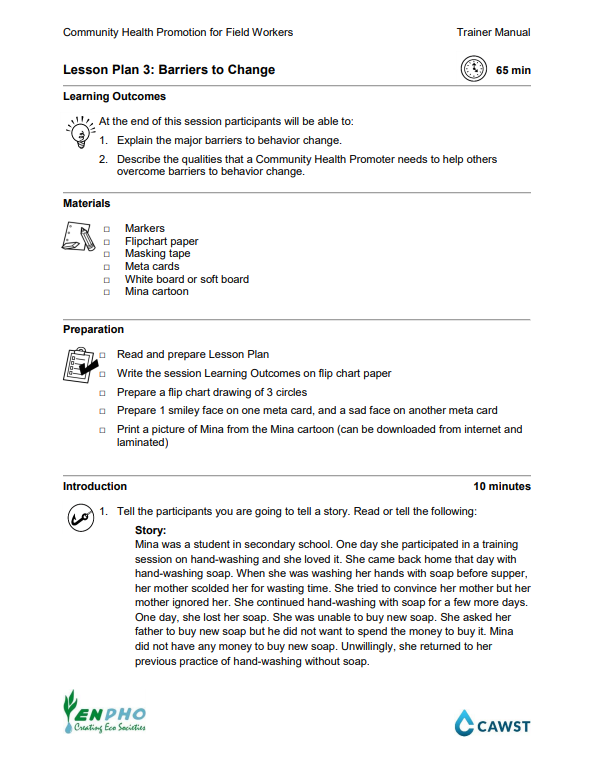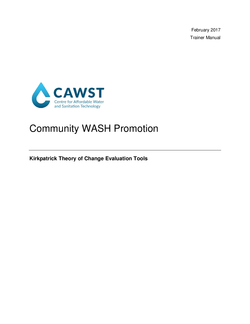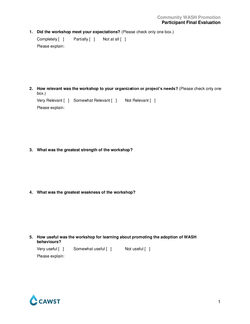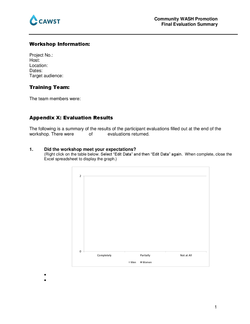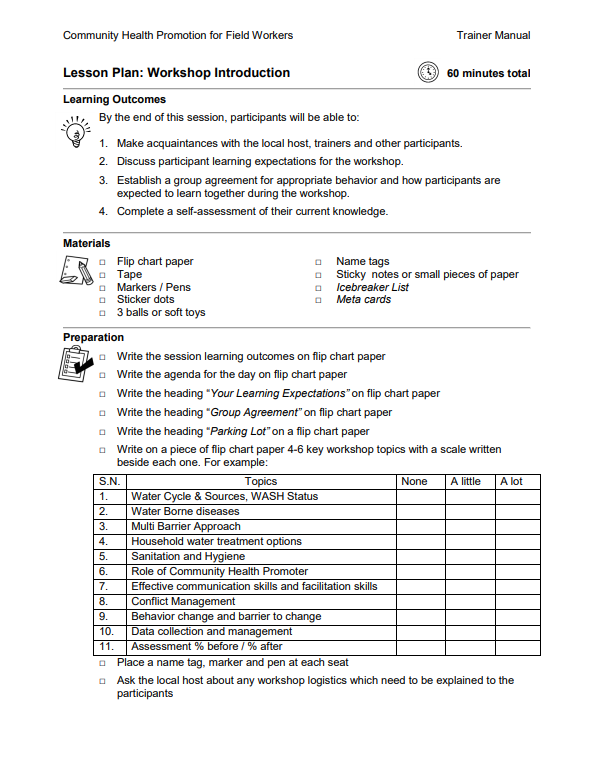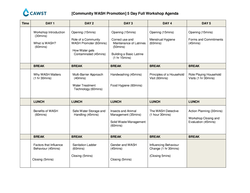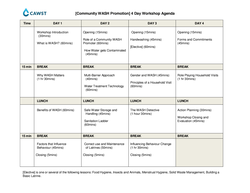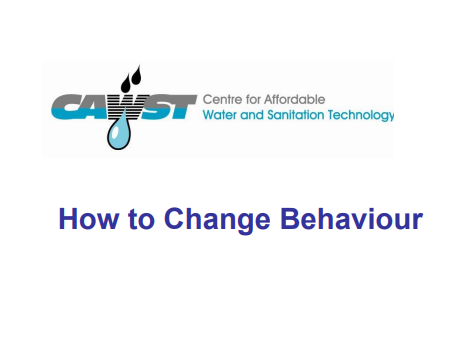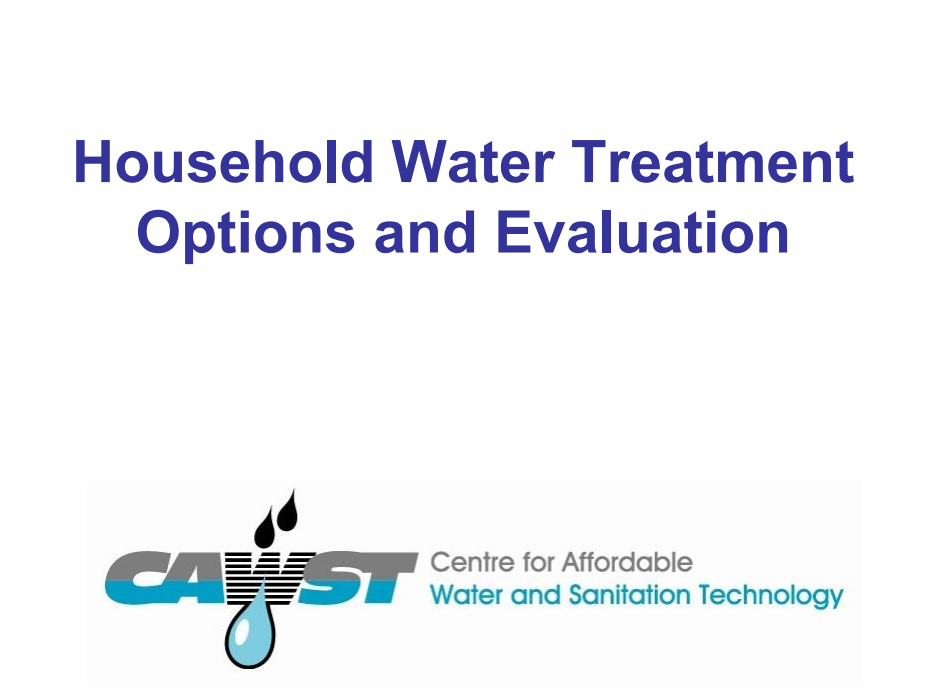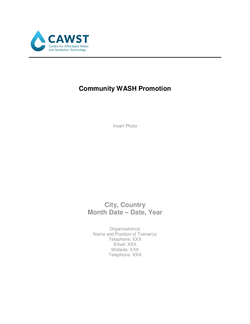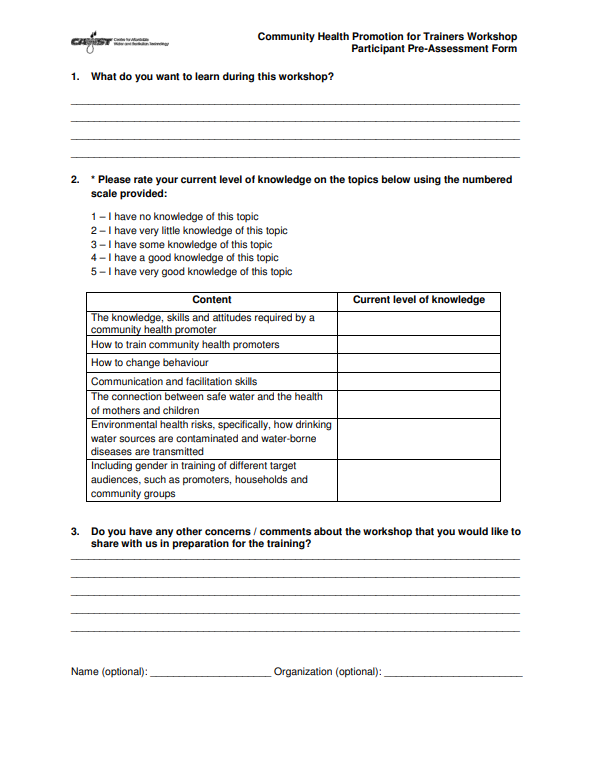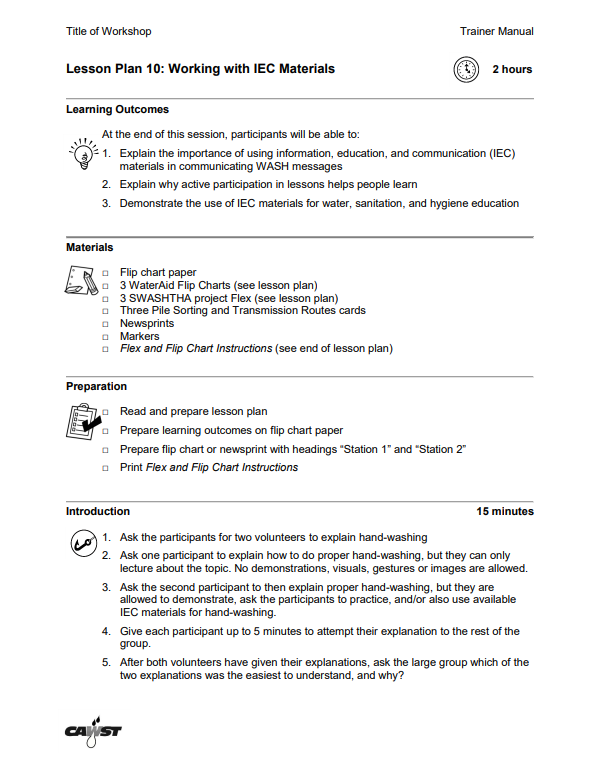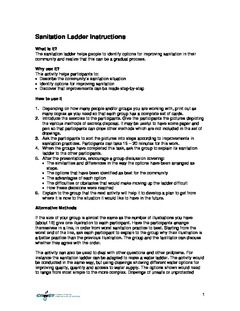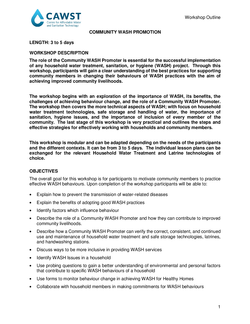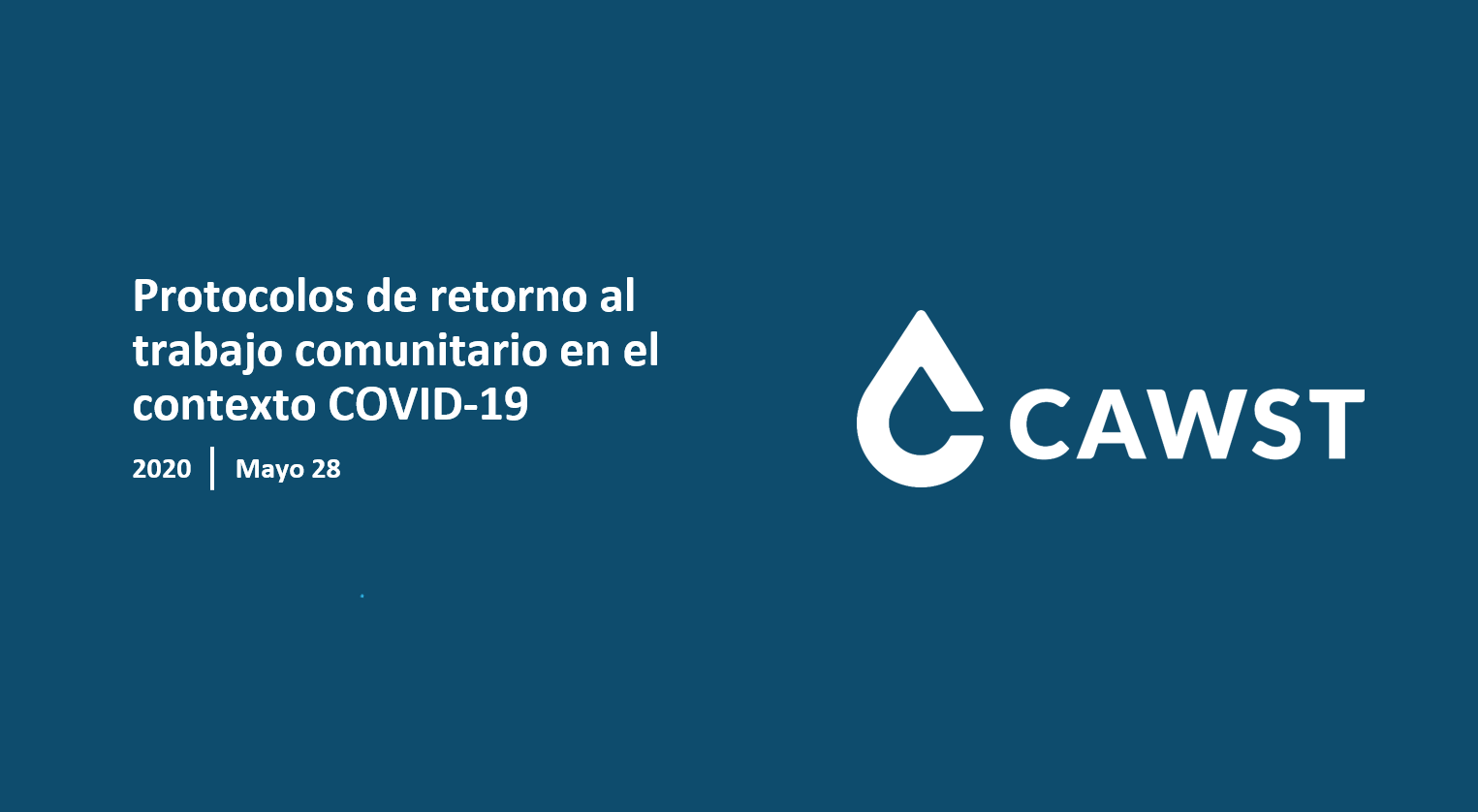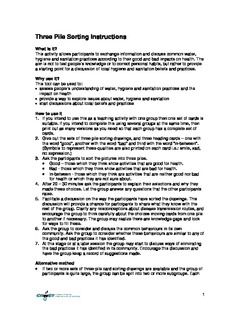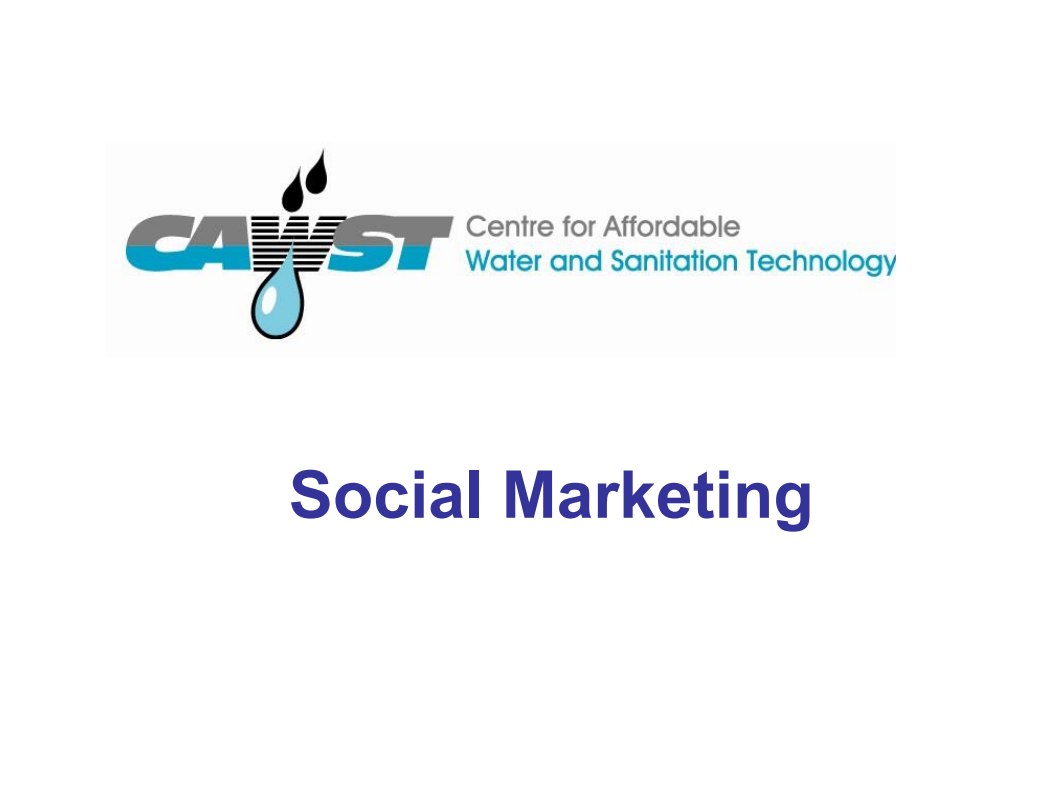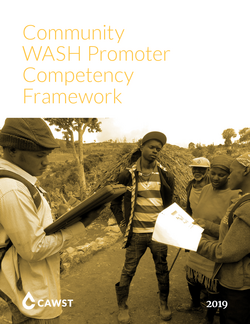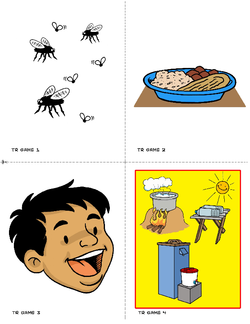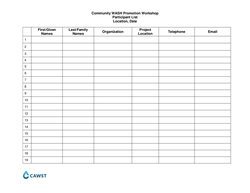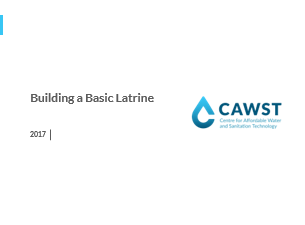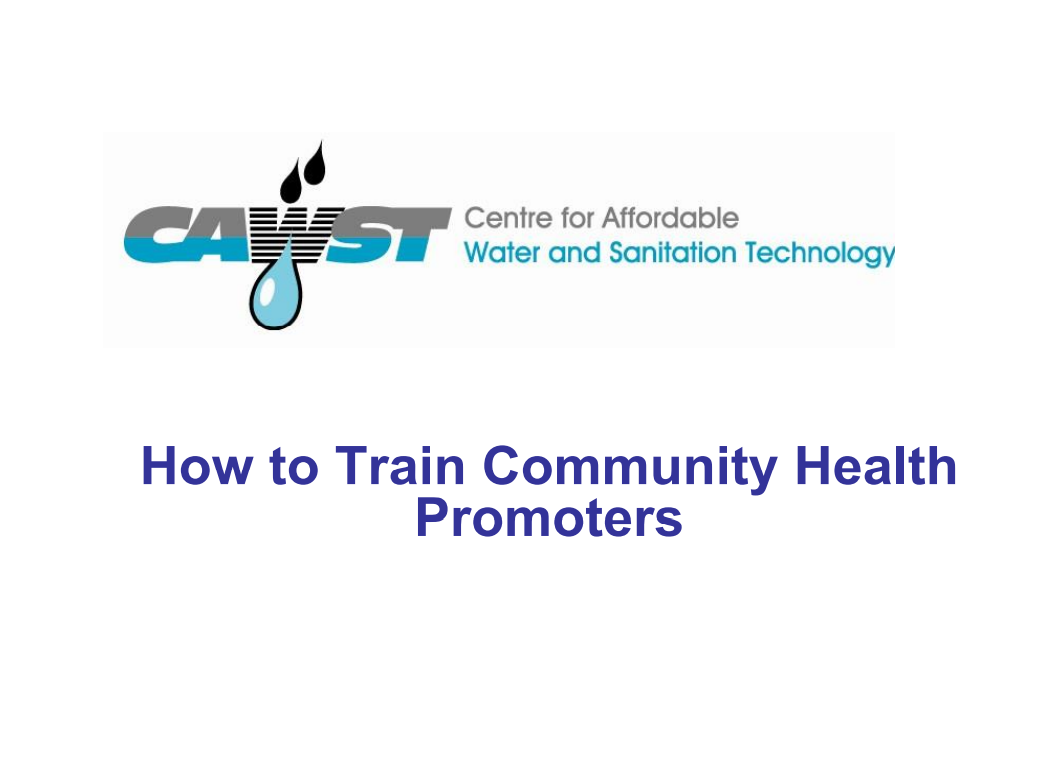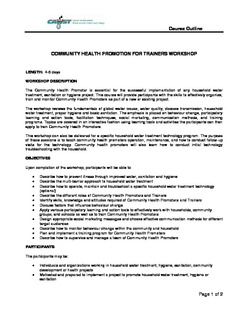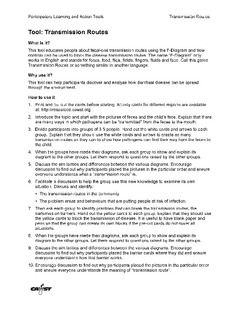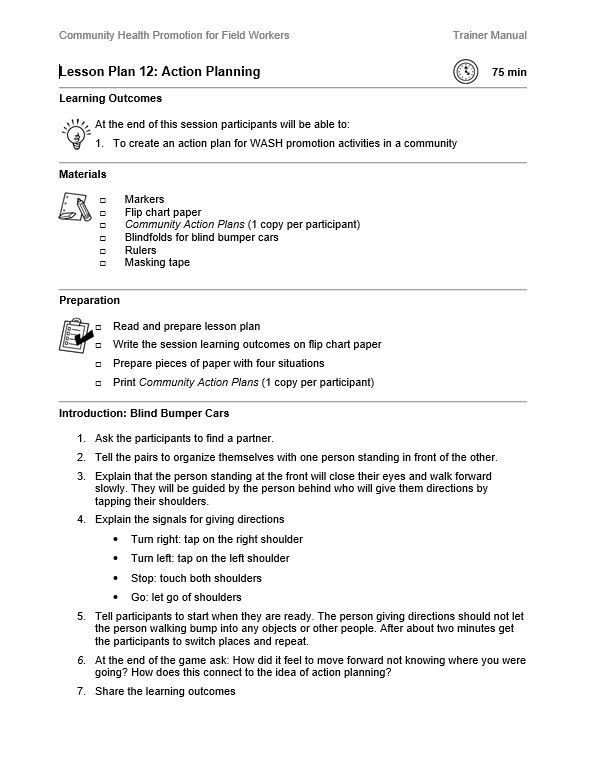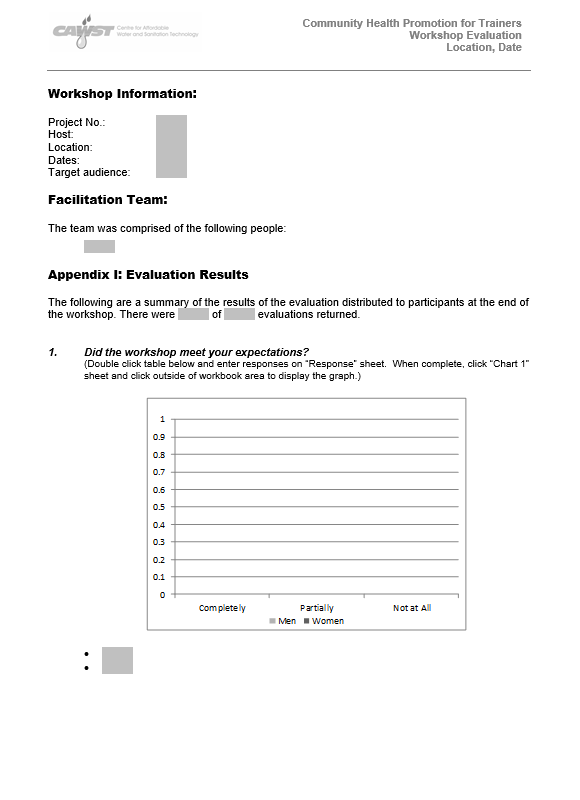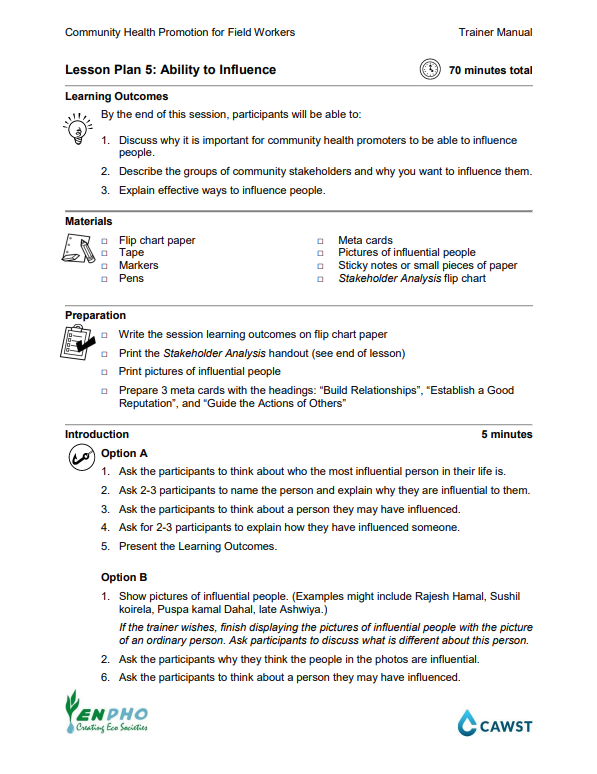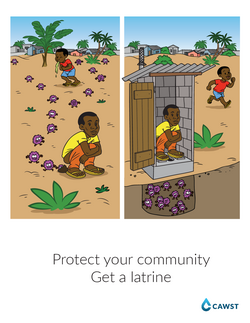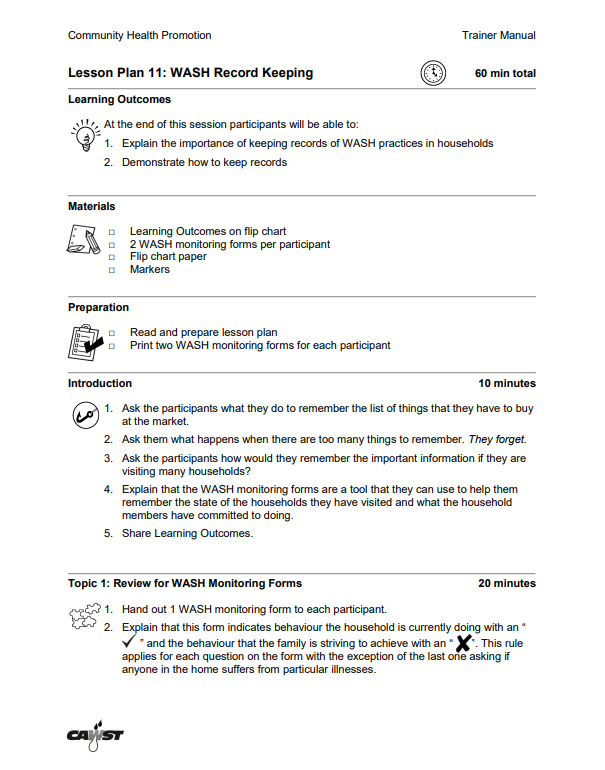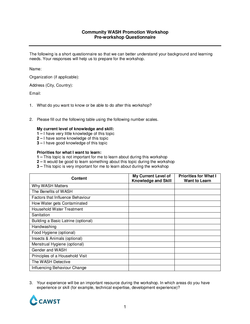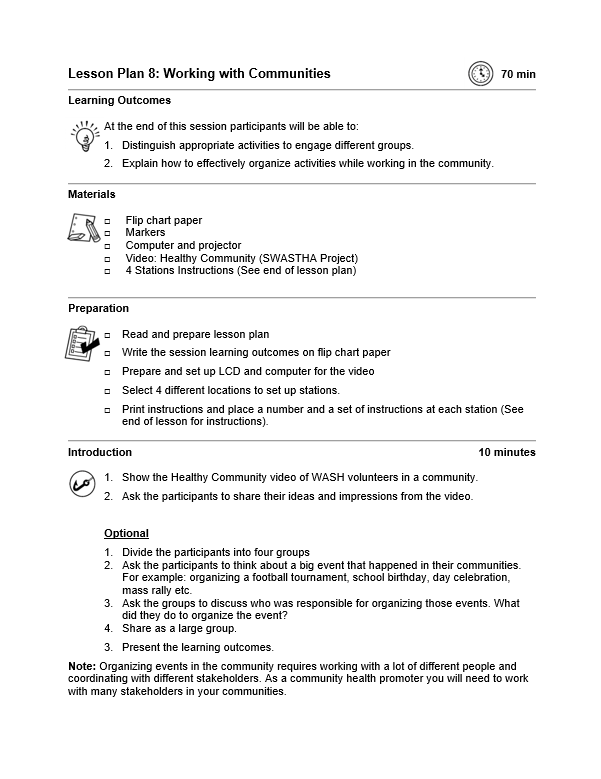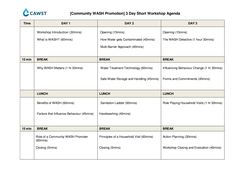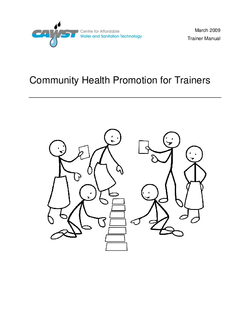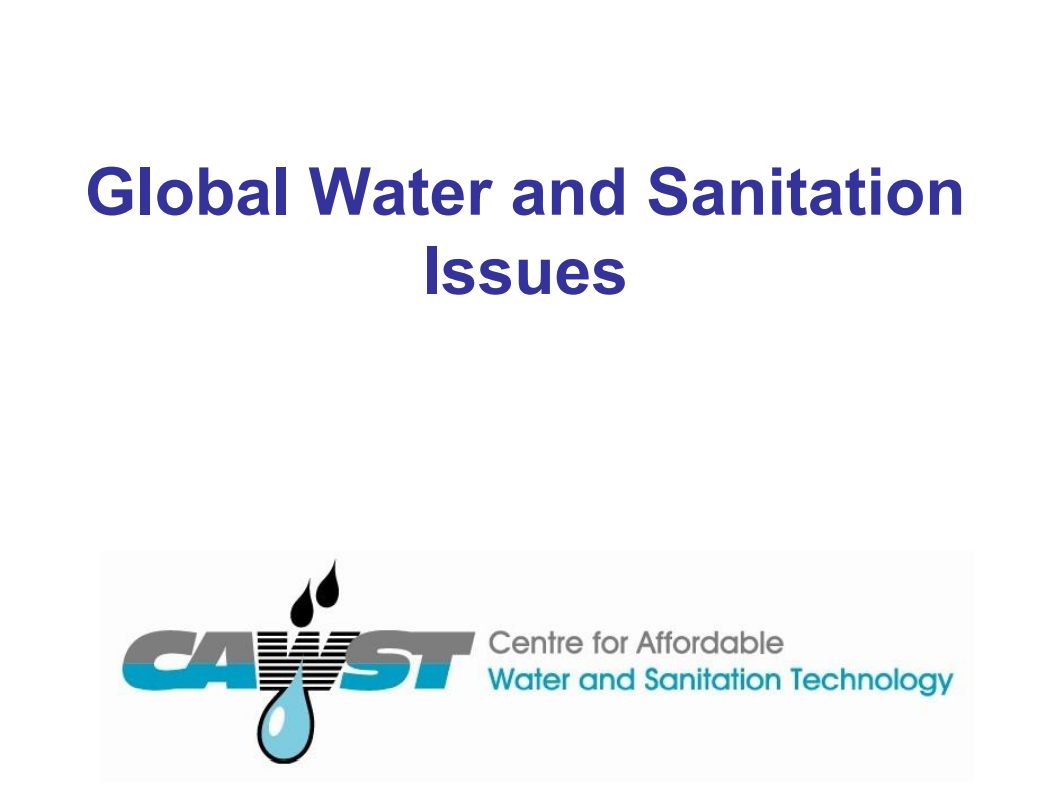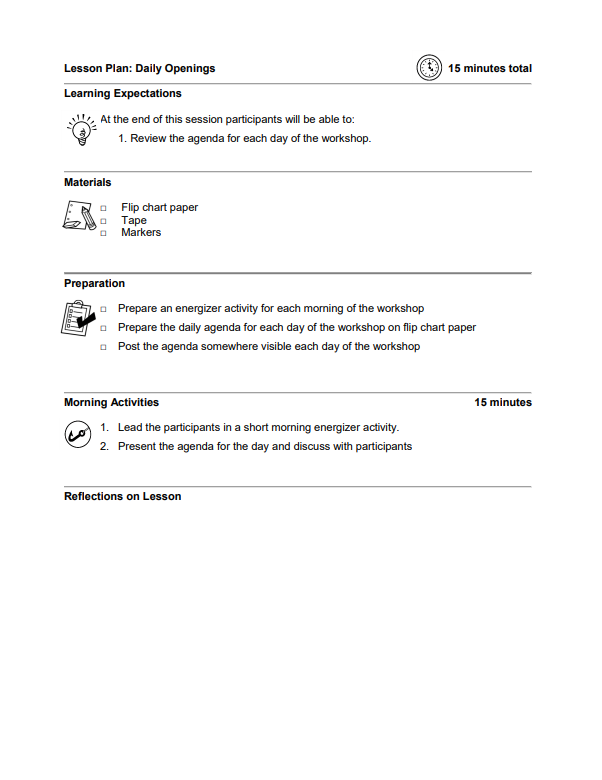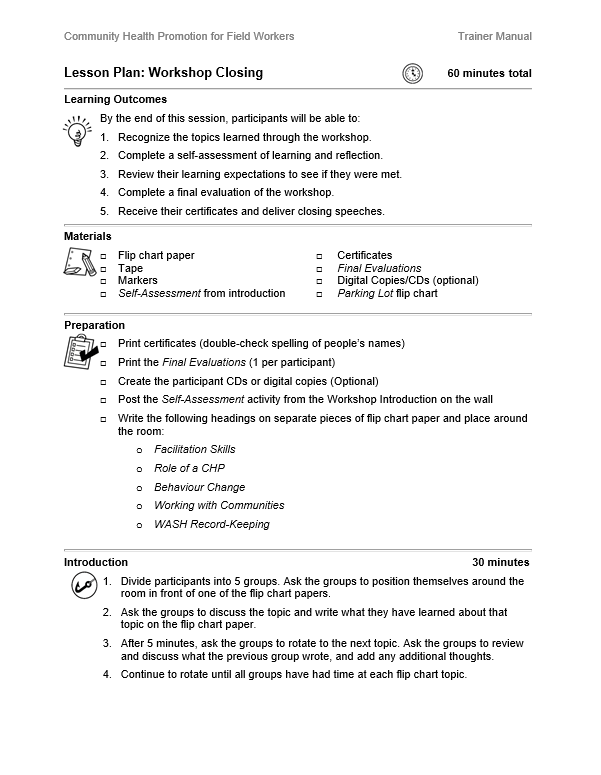Explore Community WASH Promotion
Menstrual Hygiene Management
This collection contains the resources for both trainers and participants on menstrual hygiene management. These materials are designed for organizations introducing menstrual hygiene management.
Languages
Spanish
English
French
Khmer
Amharic
Menstrual Hygiene Management Technical Brief
This technical brief describes the variety of sanitary products available, WASH as it relates to menstrual hygiene, cultural and religious restrictions related to menstrual hygiene and the impact it has on health and education.
Languages
Spanish
English
French
Khmer
Competency Frameworks
This collection of competency frameworks can be used by individuals and organizations in two main ways: Assess job performance and compare it against defined standards Identify potential areas for professional development to improve overall performance Competencies are the abilities required to perform specific tasks and express specific knowledge. CAWST’s competency frameworks use behavioural or task-based competencies in combination with knowledge components.
Languages
Spanish
French
English
Stainless Steel Biosand Filter (JalKalp) Guide
This guide is designed to support the Community Health Promoter in encouraging the adoption, monitoring and performance evaluation of the JalKalp Biosand Filter.
Languages
Hindi
Community WASH Promotion Trainer Manual
This manual is for trainers who are interested in delivering training on Community WASH Promotion. It includes lesson plans, agendas, forms, and guidance on training delivery.
Languages
English
Spanish
French
Arabic
Hindi
Protect Your Water
There are ways to protect water from contamination (watershed and water source protection, protected well, proper rainwater storage, good wastewater disposal).
Languages
Spanish
English
Swahili
Haitian Creole
French
Wayuu
Workshop Closing - Lesson Plan (CWP)
In the workshop closing, participants review what they learned, evaluate the workshop, and receive a certificate. The final closing is an opportunity to consolidate participants’ learning, gather feedback and celebrate successes.
Languages
English
Arabic
French
Spanish
Action Planning - Lesson Plan (CWP)
In this lesson, participants will create individual action plans. Action plans help participants set goals to become better Community WASH Promoters and constantly improve their effectiveness to create a bigger impact.
Languages
English
Arabic
French
Spanish
Role Playing Household Visits - Lesson Plan (CWP)
In this lesson, participants apply the knowledge and skills they have learned during previous lessons to practice conducting a household visit. They will practice being adaptive to the needs of household members according to different possible scenarios they may face as a Community WASH Promoter.
Languages
English
Arabic
French
Spanish
Forms and Commitments - Lesson Plan (CWP)
In this lesson, participants will discuss the importance of using forms to collect information from household members to influence change. They will also review how to use monitoring forms effectively.
Languages
English
Arabic
French
Spanish
Influencing Behaviour Change - Lesson Plan (CWP)
In this lesson, participants will cover the 3rd principle of a household visit: Influencing Behaviour Change. They will discuss strategies that a Community WASH Promoter can use to try to influence someone to adopt good WASH behaviours.
Languages
English
Arabic
French
Spanish
Identifying and Prioritizing WASH Issues - Lesson Plan (CWP)
In this lesson, participants will be identifying how to identify WASH issues in a household or community. They will then discuss the importance of understanding the reasons and context of a household before attempting to influence behaviour change. Finally, participants will discuss ways to prioritize solving different WASH issues in a household.
Languages
English
Arabic
French
Spanish
Principles of a Household Visit - Lesson Plan (CWP)
This lesson focuses on the purpose of household visits in the realm of behaviour change. Participants will discuss respectful and collaborative approaches when working with households, as well as general steps to take during a household visit.
Languages
English
Arabic
French
Spanish
Gender and WASH - Lesson Plan (CWP)
This lesson focuses on the differences between sex and gender. Participants will explore how gender is directly related to WASH. Participants will also discuss how gender affects their work as Community WASH Promoters.
Languages
English
Arabic
French
Spanish
Insects and Animals - Lesson Plan (CWP)
This lesson focuses on the ways that insects and animals contribute to the spread of pathogens and diseases. Participants also discuss strategies to reduce diseases transmission.
Languages
English
Arabic
French
Spanish
Solid Waste Management - Lesson Plan (CWP)
This lesson introduces the importance of managing waste. It covers an integrated solid waste management and the different stages where intervention activities can be effective, including reducing, reusing, recycling, composting, burning, and burying
Languages
English
Arabic
French
Spanish
Menstrual Hygiene - Lesson Plan (CWP)
This lesson uses a role-play activity to introduce the challenges that many women and girls have in managing their menstrual hygiene, and the impacts on their health and education. Participants will identify solutions to meet the menstrual hygiene needs of women and girls at home and in school.
Languages
English
Arabic
French
Spanish
Food Hygiene - Lesson Plan (CWP)
This lesson will focus on how food is contaminated. Participants will also explore ways to prevent people from getting sick from eating contaminated food.
Languages
English
Arabic
French
Spanish
Handwashing - Lesson Plan (CWP)
The focus of this lesson is to provide participants with crucial information about handwashing and hygiene to prevent the spread of disease with an optional section on how to construct a low-cost handwashing station.
Languages
English
Arabic
French
Spanish
Building a Basic Latrine - Lesson Plan (CWP)
Participants will discuss the challenges of a household building their own latrines. They will also learn about the main parts of a basic latrine and latrine siting.
Languages
English
Arabic
French
Spanish
Correct Use and Maintenance of Latrines - Lesson Plan (CWP)
This lesson introduces participants to latrine cleanliness, maintenance activities, and the frequency in which they should occur.
Languages
English
Arabic
French
Spanish
Sanitation Ladder - Lesson Plan (CWP)
Participants will explore how to evaluate why different sanitation practices are better than others. They will also discuss the advantages and challenges of improving sanitation options
Languages
English
Arabic
French
Spanish
Safe Water Storage and Handling - Lesson Plan (CWP)
This lesson focuses on keeping water safe from re-contamination. It covers safe storage, as well as safe handling of clean water.
Languages
English
Arabic
French
Spanish
SODIS - Lesson Plan (CWP)
This lesson focuses on the use of SODIS to treat water. This lesson will also focus on how a Community WASH Promoter can verify that a household is using SODIS correctly, consistently, and continually.
Languages
English
Arabic
French
Spanish
Chlorine - Lesson Plan (CWP)
In this lesson, participants study how to use chlorine to treat their drinking water. This lesson will also focus on how a Community WASH Promoter can verify that a household is using chlorine correctly, consistently, and continually.
Languages
English
Arabic
Spanish
French
Ceramic Pot Filter - Lesson Plan (CWP)
In this lesson, participants will study how to use and maintain a ceramic pot filter. This lesson will also focus on how a Community WASH Promoter can verify that a household is using a ceramic pot filter correctly, consistently, and continually.
Languages
English
Arabic
Spanish
French
Ceramic Candle Filter - Lesson Plan (CWP)
In this lesson, participants will study how to use and maintain a ceramic candle filter. This lesson will also focus on how a Community WASH Promoter can verify that a household is using their filter correctly, consistently, and continually.
Languages
English
Arabic
Spanish
French
BSF - Lesson Plan (CWP)
In this lesson, participants will look at how to use and maintain a biosand filter. This lesson will also focus on how a Community WASH Promoter can verify that a household is using their filter correctly, consistently, and continually.
Languages
English
Arabic
Spanish
French
Water Treatment Blank Template - Lesson Plan (CWP)
In this lesson, participants study how to use and maintain a [water treatment technology]. This lesson will also focus on how a Community WASH Promoter can verify that a household is using [water treatment technology] correctly, consistently, and continually
Languages
English
Arabic
Spanish
French
Multi-Barrier Approach - Lesson Plan (CWP)
In this lesson, participants explore how households can use the multi-barrier approach to ensure they are drinking safe water. The lesson will cover source protection, sedimentation, filtration, disinfection, and safe storage
Languages
English
Arabic
French
Spanish
How Water gets Contaminated - Lesson Plan (CWP)
Participants will explore how water gets contaminated by building a model of a watershed and discussing the impact of agriculture, industry, poor sanitation, and pollution on water quality. They will discuss how human activities are causes of water contamination.
Languages
English
Arabic
French
Spanish
Role of a CWP - Lesson Plan (CWP)
In this lesson, participants examine the role of a Community WASH Promoter and the different individuals who could potentially play that role. They discuss how the role of a Community WASH Promoter is critical for the improved livelihood of communities.
Languages
English
Arabic
French
Spanish
Factors that Influence Behaviour - Lesson Plan (CWP)
In this lesson, participants explore different barriers that prevent people from changing behaviour and adopting WASH practices. They will act out common situations through scenarios and will discuss the different reasons that people give for why they are not adopting certain WASH practices.
Languages
English
Arabic
French
Spanish
Benefits of WASH - Lesson Plan (CWP)
In this lesson, participants will further explore the importance of WASH by discussing several ways that individuals and households can benefit by adopting effective WASH behaviours.
Languages
English
Arabic
French
Spanish
Why WASH Matters - Lesson Plan (CWP)
In this lesson, participants will discuss the importance of having good WASH practices in reducing the spread of water-related diseases and breaking the poverty cycle. The lesson will also highlight relevant global and national goals related to WASH.
Languages
English
Arabic
French
Spanish
What is WASH? - Lesson Plan (CWP)
The focus of this lesson is to highlight the connection between WASH and the spread of diseases. Participants will explore the different ways water-related diseases can be transmitted, and the different ways of preventing their transmission.
Languages
English
Arabic
French
Spanish
Workshop Introduction - Lesson Plan (CWP)
In this lesson, participants will learn about who is hosting the workshop, what the workshop will cover, and how they will participate.
Languages
English
Arabic
French
Spanish
Community WASH Promotion (CWP) Workshop
These workshop materials contain the resources for the Community WASH Promotion workshop. The role of the Community WASH Promoter is essential for the successful implementation of any household water treatment, sanitation, or hygiene (WASH) project. Through this workshop, participants will gain a clear understanding of the best practices for supporting community members in changing their behaviours of WASH practices with the aim of achieving improved community livelihoods.
Languages
English
Spanish
French
Arabic
Hindi
nt
The WASH Detective Activity
This tool helps people practice identifying WASH issues in a household. It also helps people learn how to find out more information on why the WASH issues exist in a household. It is designed for the Community WASH Promotion workshop; however, it can be used for any audience
Languages
nt
Games and Activities
Use these activities and games to facilitate group understanding of water, sanitation, and hygiene.
Languages
French
English
Spanish
nt
HydrAid Water, Sanitation and Hygiene Poster Set
This poster presentation can be used as a participatory learning tool by Community Health Promoters (CHP) in a variety of situations to: • Teach about safe water, hygiene and sanitation practices in general; • Introduce new household water treatment technologies; • Train people how to operate and maintain their household water treatment technology; and • Reinforce messages about household water treatment, hygiene and sanitation on a return visit to a household.
Languages
nt
English
Cholera Prevention Poster
This poster was created by the Haitian government using CAWST's images to educate people about how to prevent cholera.
Languages
Spanish
Haitian Creole
French
English
Household Water Treatment Program Design Job Aids
This collection includes job aids that will help you to design, implement, monitor and evaluate your household water treatment program. These practical resources are easy to use and include tools and templates for budgeting, reporting, needs assessment, gap analysis and more.
Languages
English
French
Spanish
Arabic
Community WASH needs Assessment Survey
A water hygiene and sanitation needs assessment is a review process for determining and addressing essential WASH needs/discrepancies of a community or population.
Languages
English
Arabic
French
Spanish
Community WASH needs Assessment Guide
A water hygiene and sanitation needs assessment guide reviews the basic WASH needs/discrepancies between the current condition and the wanted or required status.
Languages
English
French
Spanish
Arabic
The WASH Detective Activity Instructions
These are the instructions for the WASH Detective activity.
Languages
Spanish
English
French
Get Good Water
You can have good water if you from protect the water source, treat your water and store your treated water safely.
Languages
English
Spanish
Swahili
French
Haitian Creole
Hygiene - Lesson Plan (Intro to WASH)
Define the different types of hygiene, explore the importance of domestic hygiene and what needs to be considered in a hygienic household, the importance of personal hygiene and activities and the frequency of each activity to be done
Languages
English
What is WASH? - Lesson Plan (Intro to WASH)
This lesson will cover the current situation of WASH in Afghanistan, explore the meaning of WASH, and why WASH is important in eradicating poverty.
Languages
English
Day 2 Closing - Lesson Plan (CHP Nepal)
This is an optional lesson plan for the Community Health Promotion Nepal workshop about how to review the concepts covered in Day 2.
Languages
English
Day 1 Closing - Lesson Plan (CHP Nepal)
This is an optional lesson plan for the Community Health Promotion Nepal workshop about how to review the concepts covered in Day 1.
Languages
English
Business Model Canvas: Aqua Clara Kenya
The Business Model Canvas is a one page business plan that clearly sets out the nine key elements you need to consider in planning your business. The Business Model Canvas was created in 2010 by Osterwalder and Pigneur. This canvas describes Aqua Clara Kenya's market-based approach to deliver biosand filters and membrane filters, handwashing and safe water storage containers to consumers in Kenya.
Languages
English
Spanish
French
Water, Hygiene and Sanitation Presentation Cover
Water, Hygiene and Sanitation Presentation Cover
Languages
English
French
Haitian Creole
Swahili
Spanish
Community Health Promotion (CHP Nepal) Workshop
This workshop is designed for those who are interested in delivering training on community health promotion. It includes lessons plans and guidance on training delivery.
Languages
English
Get a Latrine: Keep Your Community Clean Poster
Get a latrine: Keep your community clean poster
Languages
English
Haitian Creole
Bemba
French
Spanish
Amharic
Vulnerable Populations - Lesson Plan (Intro to WASH Nepal)
This lesson plan identifies vulnerable population groups in a community and explains how a WASH volunteer/CHP/Individual can support vulnerable people.
Languages
English
Gender and WASH - Lesson Plan (Intro to WASH Nepal)
This lesson classifies WASH activities by gender at the household and community level, describes the relationship between gender and WASH, and explains how to create gender balance in WASH-related activities at the household level.
Languages
English
Community Health Promotion for Trainers Final Evaluation
This questionnaire is to be handed out at the end of the workshop to give the trainer constructive feedback on the workshop
Languages
Spanish
English
French
Introduction to WASH
This is an introductory level workshop that was co-developed with our partners in Afghanistan at DACAAR. This workshop is for those who are just starting to work in the Water, Sanitation, and Hygiene sector. It covers the basic of WASH which include topics of disease transmission, household water treatment, solid waste management, vector control, sanitation, hygiene, and behaviour change.
Languages
English
Protect Your Family
There are water, sanitation and hygiene practices that will protect your family.
Languages
English
Development and Delivery: Emergency WASH for Community Agents Training in Preparation and Response to Natural Disasters in Haiti
The presentation that will be delivered will speak about the WASH context in Haiti and how natural disasters have shaped Haiti’s access to safe water and sanitation. WASH Training and Consulting Services at Pure Water for the World in 2015 were able to co-develop an EWASH (Emergency WASH) training for CHPs during times of emergency. The presenter will speak about why emergency situations are different than other contexts and how this context presents difficulties in terms of delivering effective WASH solutions. The presentation will cover three recent natural disasters that struck Haiti (Earthquake 2010, Hurricane Mathew, Hurricane Irma) and how Pure Water for the World responded. The presentation will emphasize the impact that education can have after or before a disaster and how this differs from a direct on the ground response. The presentation will also cover why we chose to develop this training and what our goals were for the new workshop and how it is evolving. This presentation will mainly focus on our recent response to Hurricane Irma where we were able to deliver the workshop two times the week following the hurricane once in Port au Prince and then after in Cap Haitien where flooding and heavy rains were most prevalent. Facilitator: Andrew Scott Coco has been traveling to Haiti since 2011, where his mother was a medical volunteer after the 2010 earthquake. She eventually began working for Pure Water for the World shortly thereafter, while Andrew was studying Environmental Studies at the University of Vermont with a degree focus on Sustainability studies. Andrew has subsequently volunteered with Pure Water for the World during his school breaks and summer vacation since 2012. Over time, Scott found that all his course work and school focus were about Haiti: all the classes, papers, and degree track tied back into his ongoing experience in Haiti. He secured an internship with Pure Water for the World working in the Water Quality Testing laboratory in 2013.
Languages
English
Gender Roles Activity Instructions
These instructions explain how to facilitate the water, sanitation and hygiene gender roles activity with a group of people.
Languages
French
English
Spanish
Gender Roles Activity
This document includes the gender roles activity and instructions for facilitating the activity. The gender roles activity is a participatory tool to help a group of people to discuss gender roles related to water, sanitation and hygiene (WASH).
Languages
English
French
Spanish
HydrAid Water, Sanitation and Hygiene Poster Set
This poster set includes water, sanitation and hygiene (WASH) posters to teach about good WASH practices, including some household water treatment technologies. This poster set was designed with images of the HydrAid, plastic biosand filter.
Languages
nt
English
Community Health Promotion for Trainers
This manual is for project implementers who are interested in starting or strengthening their community health promotion activities for water, sanitation, and hygiene projects.
Languages
French
English
Spanish
Role of Community Health Promoter
This is a lesson plan that explains what a CHP is and their roles and responsibilities.
Languages
English
Sanitation Ladder Activity
This document includes the sanitation ladder activity and instructions for facilitating the activity. The sanitation ladder activity is a participatory tool to help people to identify options for improving sanitation in their community and realize that this can be a gradual process.
Languages
English
Spanish
French
Barriers to Change
This is a lesson plan that explains the major barriers to behaviour change and how CHPs can help others overcome these barriers.
Languages
English
Conflict Management
This is a lesson plan describing the causes of conflicts in communities and explaining how to manage conflicts in communities.
Languages
English
Community WASH Promotion Evaluation Tools (CWP)
CAWST uses the Kirkpatrick framework in workshop design. Based on this, we created a Theory of Change for the Community WASH Promotion workshop as well as tools to evaluate the workshop’s effectiveness. This document presents tools to evaluate the effectiveness of your training workshop. It includes questionnaires and observation sheets.
Languages
English
Spanish
French
Community WASH Promotion Final Evaluation
This is the final evaluation template for participants to provide feedback after a Community WASH Promotion workshop.
Languages
Spanish
English
French
Community WASH Promotion Final Evaluation Summary
This is a template for displaying the final results of your participant evaluations for your Community WASH Promotion workshop.
Languages
French
English
Spanish
Workshop Introduction
This is a lesson plan that explains how to open the Community Health Promotion Nepal workshop.
Languages
English
Community WASH Promotion 5 Day Agenda for Participants
Intensive agenda that includes behaviour change, technical WASH knowledge, all hygiene topics for the WASH for Healthy Homes criteria, and the principles of conducting a household visit.
Languages
French
English
Spanish
Community WASH Promotion 4 Day Agenda for Participants
Balanced agenda that includes behaviour change, technical WASH knowledge, and principles of conducting a household visit. It gives the option of choosing from a variety of elective topics.
Languages
English
French
Spanish
Behaviour Change Presentation (CHP for Trainers)
This presentation describes what is necessary for behaviour change (Designed for Lesson Plan 8 of the CHP for Trainers Trainer Manual)
Languages
French
Spanish
English
HWTS Options and Evaluation Presentation (CHP for Trainers)
This presentation describes HWTS options and their pros and cons
Languages
English
Spanish
French
Community WASH Promotion Workshop Report Template
This is a workshop report template that will guide you in writing a professional report of your Community WASH Promotion workshop.
Languages
French
Spanish
English
Community Health Promotion for Trainers Pre-Assessment
This questionnaire helps the trainer to understand their audience and their level of knowledge pre-workshop
Languages
English
Working with IEC Materials
This is a lesson plan that explains the importance of using information, education, and communication (IEC) materials in communicating WASH messages and why active participation in lessons helps people learn.
Languages
English
Sanitation Ladder Activity Instructions
These instructions explain how to facilitate the sanitation ladder activity with a group of people.
Languages
Spanish
English
French
Community WASH Promotion Workshop Outline
This outline describes the content, objectives and audience for the Community WASH Promotion workshop.
Languages
English
Spanish
French
COVID-19 Health and Safety Protocols Adapted for Colombia
This PowerPoint includes practical recommendations on safety and security when doing community work adapted for different contexts. Este PowerPoint contiene una serie de recomendaciones de bioseguridad para la vuelta al trabajo en el contexto COVID-19 específicos y adaptados para Colombia.
Languages
Spanish
Working with Households
This is a lesson plan about prioritizing WASH issues in a household level according to what would be easiest for a household to change, recommending solutions to WASH issues in a household, demonstrating and discussing attitudes and good manners needed when working in a household, and discussing ways to support a household in making WASH changes.
Languages
English
Three Pile Sorting Activity Instructions
These instructions explain how to facilitate the three pile sorting activity with a group of people.
Languages
English
Spanish
French
Social Marketing Presentation (CHP for Trainers)
This presentation describes how to raise awareness (Designed for Lesson Plan 10 of the CHP for Trainers Trainer Manual)
Languages
English
French
Spanish
Competency Framework Guide for Community WASH Promoters
This competency framework can help you as a manager or supervisor to support Community WASH Promoters to be successful in their role. You can use this tool to: (1) Identify the level of competency that is expected from Community WASH Promoters for each competency group. (2) Help design the learning and development strategy to support the professional growth of Community WASH Promoters. (3) Provide new insights on how Community WASH Promoters can be used to achieve behaviour change in their target communities.
Languages
English
Spanish
French
Animal Excreta Transmission Routes Activity Instructions
These instructions explain how to facilitate the animal excreta transmission routes activity with a group of people.
Languages
French
English
Transmission Routes Activity
This document includes the transmission routes activity and instructions for facilitating the activity. The transmission routes activity is a participatory tool to educate people about how feces can make us sick. The tool also helps a group of people to identify how to stop the transmission of water-related diseases.
Languages
English
French
Spanish
Why WASH Matters Template - Presentation (CWP)
This presentation template is used to support the Why WASH Matters - Lesson Plan (CWP). It will be used as an activity for the lesson. You will need to modify the template with statistics and information about the country in which you are delivering the workshop.
Languages
English
French
Spanish
Community WASH Promotion Participant List Template
This participant list template is a tool that will help you keep a database of participant information for your Community WASH Promotion Workshop
Languages
French
English
Spanish
Building a Basic Latrine - Presentation (CWP)
This presentation is used to support the Building a Basic Latrine Lesson Plan (CWP). It covers latrine citing, parts and functions of a latrine.
Languages
French
Spanish
English
How to Train CHPs Presentation (CHP for Trainers)
This presentation describes to recruit CHP and run a training program (Designed for Lesson Plan 16 in the CHP for Trainers Trainer Manual)
Languages
English
Spanish
French
Community Health Promotion for Trainers Workshop Outline
This workshop outline contains a workshop description, objectives, audience, content and training materials needed for this workshop
Languages
Spanish
French
English
Animal Excreta Transmission Routes Activity
This document includes the animal excreta transmission routes activity and instructions for facilitating the activity. The animal excreta transmission routes activity is a participatory tool to educate people about how feces from animals can make us sick. The tool also helps a group of people to identify how to stop the transmission of diseases related to animal excreta.
Languages
English
French
Transmission Routes Activity Instructions
These instructions explain how to facilitate the transmission routes activity with a group of people.
Languages
French
English
Spanish
Action Planning
This is a lesson plan to help CHPs create an action plan for WASH promotion activities in a community.
Languages
English
Community Health Promotion for Trainers Final Evaluation Summary
This is a template of how to display the results of your final evaluations
Languages
French
Spanish
English
Ability to Influence
This is a lesson plan that discusses why it is important for community health promoters to be able to influence people, describes the groups of community stakeholders and why you want to influence them, and explains effective ways to influence people.
Languages
English
WASH Record Keeping
This is a lesson plan that explains the importance of keeping records of WASH practices in households and how to keep good records.
Languages
English
Community WASH Promotion Pre-Workshop Questionnaire
This is a pre-workshop questionnaire template to find out more about the participants in your Community WASH Promotion workshop.
Languages
French
English
Spanish
Working with Communities
This is a lesson plan that distinguishes appropriate activities to engage different groups and explains how to effectively organize activities while working in the community.
Languages
English
Three Pile Sorting Activity
This document includes the three pile sorting activity and instructions for facilitating the activity. The three pile sorting activity is a participatory tool to help a group of people discuss common water, sanitation and hygiene practices and beliefs.
Languages
French
English
Spanish
Community WASH Promotion 3 Day Agenda for Participants
Ideal agenda if participants only have time to cover the basics of a household visit, behaviour change, and the promotion of WASH practices.
Languages
French
Spanish
English
Community Health Promotion for Trainers Trainer Manual
This manual is for trainers who are interested in delivering training on community health promotion for trainers. It includes lessons plans and guidance on training delivery.
Languages
French
Spanish
English
Global and Local Afghanistan Water Issues Presentation (CHP for Trainers)
This presentation describes local and global water and sanitation issues in Afghanistan (Designed for Lesson Plan 1 of the CHP for Trainers Training Manual)
Languages
Spanish
English
French
Global and Local Water Issues Presentation (CHP for Trainers)
This presentation describes local and global water issues and how they perpetuate the poverty cycle (Designed for Lesson Plan 2 in the CHP for Trainers Trainer Manual)
Languages
English
French
Spanish
Daily Openings
This is an optional lesson plan on how to conduct daily openings in a workshop.
Languages
English
Workshop Closing
This is a lesson plan about closing the Community Health Promotion Nepal workshop.
Languages
English
Sanitation Poster Set
This poster set includes instructional posters as well as tools for behavior change communication.
Languages
English
Haitian Creole
Amharic
French
Spanish
Bemba
Water, Sanitation and Hygiene Poster Set
This poster set includes water, sanitation and hygiene (WASH) posters to teach about good WASH practices, including household water treatment technologies.
Languages
English
Khmer
Swahili
French
Haitian Creole
Spanish
Wayuu
About CAWST
CAWST is a Canadian charity and licensed engineering firm. We address the global need for safe drinking water and sanitation by building local knowledge and skills on household solutions people can implement themselves.

